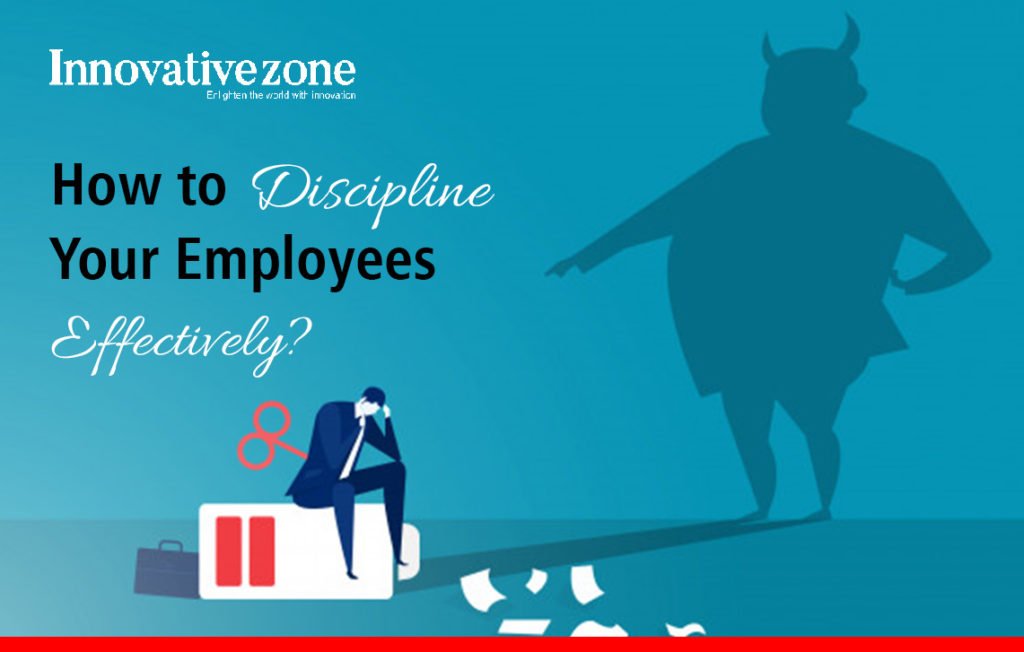How to Discipline Your Employees Effectively?
Effective discipline can help to correct employee behavioral issues and can increase productivity for the company. Ultimately, disciplining employees is a necessary matter in every organization, but it is an unpleasant one. Effective discipline will also help you to protect your company against wrongful decision-making.
A good manager will always understand that disciplining employees is part of their job, but a great manager recognizes that discipline is not synonymous with punishment. In most cases, discipline should be used to correct the behavior of the employee rather than to punish them.
The effective disciplinary action should be motivational opportunity so that the employee always feel inspired to perform better in the organization. On the other hand, every employer must aware of the fact that how to effectively discipline an employee. By maintaining a better discipline at work, you will ensure positive working relations and a better, stronger business.
There are a number of ways to maintain your employees’ focus and prevent them from counterproductive behavior. Hereby, we incorporated five ways to discipline an Employee and measures work for all businesses. If you feel uncertain about what to do when facing behavioral issues with employees, then this article will wide your view on this topic.
Identify the Employee’s Performance Problem
For identifying the employee’s performance one must have a lot of questions like – Is the issue a lack of competence or expertise? On the other hand, is employee behavior a concern? The inability to meet the goals or standards of a job position create an imbalance for the employer. Although it directly refers to less than professional conduct, such as frequent tardiness, dishonesty or insubordination in the organization. Therefore, always analyze the performance clearly with the person who is working for you. Try to solve the problems and identify them.
Setting the stage for a disciplinary meeting
If any of the employee has violated one of the company policies or code of conduct then that is not acceptable for the workplace. It is essential to take immediate steps to make the managerial position known in the company for misbehaving. Do not ignore behaviour that violates your written policies and hope it will go away. Doing that could set you up for problems later (an employee could claim he or she did not know the behaviour was a problem, or other employees could see your lack of response as biased).
Ensure consistency across the organization
How can you make sure your staff members are following proper procedures when it comes to employee discipline? The first thing to notice is the performance and behavior. Both of the things ensure the constancy of a disciplined employee. Although, well-structured written policies give managers a map to follow certain norms by the company they also need regular touch by the managers. This usually features a progressive discipline policy of verbal counseling with employees regularly.
Have control over the Laws
To avoid workplace liability and mischief in your organization, you must need to be familiar with the law or company policy. For example, if your employee has been taking too much time off from work, make sure he or she must entitled to personal counseling. Lawsuits related to quitting the job must known to managers and the employee so that they will think twice before violating rules. If the employee is eligible for work then learn what you need to do to comply and then follow through. Make flexible rules for leave and off timings so that the employee never think about imposing strict rule on them.
Be a good coach
Both new and existing employees should be coached for good discipline. Maintaining the proper norms for a company is like informal feedback and consists of what is right as well as what is wrong. For example, think about a football coach. He gives praise for a good pass or a solid tackle but also points out the missed catches and the bad defense.
Your employees also need feedback not only for poor performance but also for good terms. Providing feedback to employees make them understand how they are doing well before you get to the point of considering disciplinary action.


